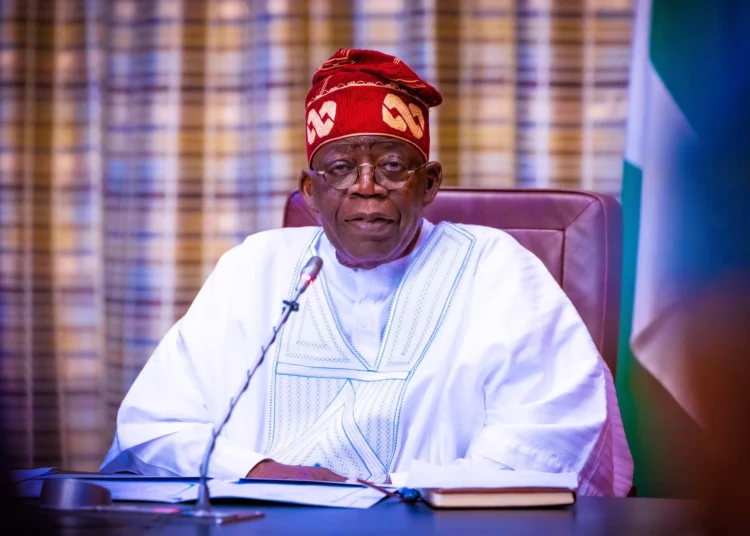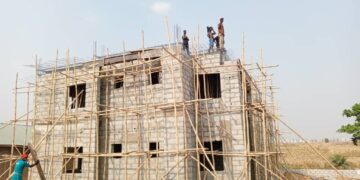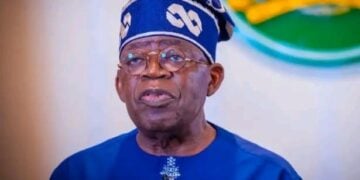President Bola Ahmed Tinubu has called for collective action and regional cooperation among African countries in actualising transformative development on the continent.
The President gave the charge on Monday in Abuja when he declared open the 4th Annual Meeting of the Africa Sovereign Investors Forum (ASIF), hosted by the Nigeria Sovereign Investment Authority (NSIA).
Represented by Vice President Kashim Shettima, President Tinubu, who was joined by other African leaders and development advocates, including AfreximBank President, Prof. Benedict Oramah, and Pan-African scholar Prof. PLO Lumumba, specifically, said shrewd utilisation of sovereign wealth funds is crucial in ongoing efforts to close the infrastructure gap, build climate change resilience and create job opportunities for the growing youth population on the continent.
The African leaders jointly called for a strategic rethinking of sovereign wealth fund utilisation across Africa, urging nations to deploy the funds for long-term infrastructure development, climate resilience, and job creation.
President Tinubu noted that the forum’s meeting with the theme, “Leveraging African Sovereign Wealth Funds to Mobilise Global Capital for Transformative Development in Africa,” was holding at a time the world is witnessing rapid transformation and is under pressure to think outside the box.
For Africa, the Nigerian leader said it is time to position the continent to seize the opportunities rooted in the wave of global change, just as he asked African nations to take a cue from evolving sovereign wealth funds across the world, which have moved beyond serving as mere fiscal buffers to become architects of national transformation.
“Our future lies not in working in silos but in pursuing regional cooperation and collective ambition. Our sovereign wealth funds must become the anchors for pan-African investment platforms that de-risk projects, standardise processes, and deliver sustainable outcomes at scale. This is not just a strategy. This is a necessity,” he declared.
Acknowledging that Africa is currently facing a development dilemma, as it contends with limited fiscal space amid growing expectations and demands for long-term capital to fuel inclusive and sustainable growth, President Tinubu, however, identified creativity as a solution to the puzzle.
He said, “There can be no greater inspiration to reimagine how we invest, whether in setting up critical infrastructure, strengthening our climate resilience, promoting food security through agricultural innovation, supporting micro, small and medium enterprises, or embracing the digital economy to create jobs and expand opportunity.
On his part, Prof. PLO Lumumba issued a passionate call for Africa’s sovereign funds to be retained and invested within the continent rather than abroad.
“Let us make sure that our sovereign funds are invested in the continent of Africa. Those of you from the African Development Fund or Development Bank, ask yourself: who are your largest investors now? Is it us?” he said.
“I’m not saying we should not collaborate with others—collaborate, we must—but let us do so from a position of strength.”
Lumumba described the effort to retain and grow African capital domestically as an “intergenerational duty,” arguing that the continent’s abundant resources must be harnessed for the benefit of future generations.
Echoing similar sentiments, Prof. Benedict Oramah, President of AfreximBank, called on stakeholders to dispel the misconception that Africa lacks bankable projects. He argued that the continent’s true challenge lies in rethinking investment strategy and ensuring sovereign wealth funds are directed toward productive ventures within Africa.
He noted that the forum can help reshape Africa’s development financing in a manner that gives the continent greater opportunity to determine its development trajectory.
The AfreximBank boss dismissed insinuations that Africa does not have bankable projects, noting that the potential across the region is huge and the challenge lies with stakeholders, especially managers of sovereign wealth funds in the continent, to rethink strategies for investment, prioritising domestic investments.
“Africa has the potential—we just need to be strategic. We must reshape development financing in a way that allows the continent to own its trajectory,” Oramah said.
Nigeria’s Minister of Finance and Coordinating Minister of the Economy, Wale Edun, also addressed the gathering, stressing the need for large-scale capital mobilisation, stronger intercontinental collaboration, alignment of policies, and investment in human capital.
He expressed optimism that the ASIF meeting would yield significant investment agreements capable of transforming Africa’s development landscape and building a sustainable economic future.
Edun listed priorities for stakeholders at the forum to include capital mobilisation at scale, regional and intercontinental collaboration, human capital and policy alignment, noting that they are critical for transformative development across the continent.
He expressed hope that the ASIF meeting would birth significant transactions that can mobilise the required resources, drive economic transformation across Africa, forge impactful partnerships and build a sustainable future.
The chairman of ASIF, Obaid Amrane, highlighted the progress made by the forum in just three years of existence. He noted that ASIF has helped close infrastructure funding gaps and strengthen collaboration among African governments and sovereign wealth institutions to deliver transformative, life-changing projects.
Managing director of the Nigeria Sovereign Investment Authority, Aminu Umar-Sadiq, used the platform to reiterate the critical role of private capital in accelerating infrastructure development across Africa. He urged forum participants to strike a balance between bold investments and conservative wealth management for future generations.
Umar-Sadiq stressed the need for ASIF’s 17 member states to jointly create a sustainable investment vehicle that can attract global capital while maintaining a dual focus on commercial viability and social impact.
He said, “We must find the right balance between being risk-takers tasked with catalysing economic impact, and being conservative stewards of intergenerational wealth.”
The event also had in attendance Nigeria’s minister of Industry, Trade and Investment, Dr. Jumoke Oduwole; president/CEO of Africa Finance Corporation, Samaila Zubairu; CEO and special representative of the UN Secretary General for Sustainable Energy for All, Ms. Damilola Ogunbiyi; Chairman of the Federal Inland Revenue Service (FIRS), Zacch Adedeji; CEO of Africa50, Alain Ebobissé; and director general of the International Solar Alliance, Ashish Khanna, among others.











